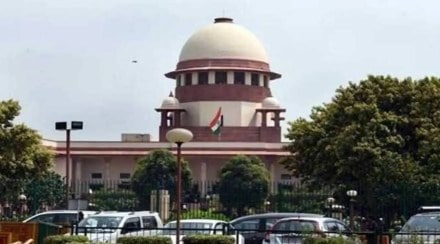Chief Justice of India (CJI) NV Ramana on Monday agreed to list a review petition against the apex court’s July 27 judgement upholding the constitutional validity of several provisions under the Prevention of Money Laundering Act (PMLA), 2002.
Upholding the constitutional validity of several provisions concerning arrest, search, seizure, and attachment among others, a bench led by Justice AM Khanwilkar had held that many provisions in question were needed for effectively tracing the crime while maintaining that several constitutional safeguards were already in place.
ALSO READ: Supreme Court upholds constitutional validity of ED’s powers to arrest under PMLA
Petitioners in this case, which included top opposition leaders like Congress MP Karti Chidambaram and former Jammu and Kashmir CM Mehbooba Mufti, had appealed to the bench to consider the validity of the overarching powers granted to the Enforcement Directorate under the PMLA.
Chidambaram, in his petition, had also claimed that the law, in itself, is violative of key fundamental rights like Article 20 which provides protection arising out of convictions for offences and the Right to Life and Liberty under Article 21.
Sections 3 (definition of money laundering), 18 (search of persons), 19 (powers of arrest), 24 (reverse burden of proof), 44 (offences triable by special court), 45 (offences being cognizable and non-bailable) were among the several provisions that were upheld by the SC.
ALSO READ: In joint statement, 17 Opposition parties say Supreme Court’s PMLA verdict ‘dangerous’
Ruling that the Enforcement Case Information Report (ECIR) is not similar to the First Information Report (FIR), the apex court said that the accused may not be provided with a copy of the ECIR unlike FIRs as it is “an internal document.”
“Supply of ECIR to accused is not mandatory and only disclosure of reasons during arrest is enough. Even the ED manual is not to be published since it is an internal document,” the court said in its order.
Soon after the July 27 verdict, 17 opposition parties criticised the order and issued a joint statement to place their “deep apprehension” over the long-term impact of the judgement.
“We place on record our deep apprehension on the long-term implications of the Supreme Court judgment upholding, in entirety, the amendments to the Prevention of Money Laundering Act, 2002, without examining whether some of these amendments could have been enacted by way of Finance Act,” the statement read.
